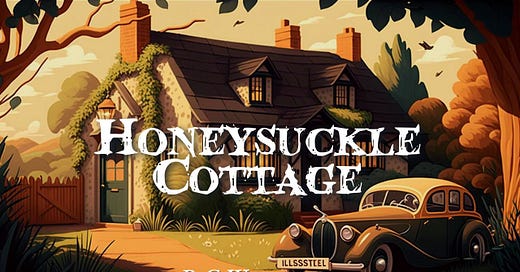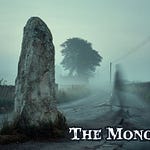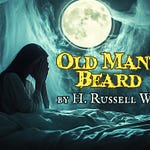P. G. Wodehouse
Sir Pelham Grenville Wodehouse, popularly known as P. G. Wodehouse, was a British humorist and author who was born on October 15, 1881, in Guildford, Surrey, England. He is widely regarded as one of the greatest comic writers in English literature and is best known for his humorous and cleverly written novels and short stories featuring the characters of Jeeves and Wooster, Psmith, and Blandings Castle.
Wodehouse was the son of a British judge who worked in Hong Kong. His mother was a talented writer who encouraged his love of reading and writing. Wodehouse was educated at Dulwich College and later at the University of Oxford. However, he left the university without completing his degree and decided to pursue a career as a writer.
Wodehouse started his writing career as a journalist and humorist for various magazines and newspapers, including Punch and The Strand Magazine. His first book, The Pothunters, was published in 1902, and he went on to publish over 90 books, including novels, collections of short stories, and plays.
In 1914, Wodehouse moved to the United States, where he continued to write and became a popular figure in the literary and social circles of New York. During World War II, Wodehouse was living in France, and he was taken prisoner by the Germans. He spent several months in a detention camp and was later released, but the controversy surrounding his imprisonment caused him to leave England and move permanently to the United States.
Throughout his career, Wodehouse's writing was celebrated for its wit, humor, and impeccable comic timing. His characters, such as the hapless Bertie Wooster and his valet Jeeves, became iconic figures in popular culture and are still widely recognized today. Wodehouse was awarded numerous honors during his lifetime, including knighthood in 1975, but he is perhaps best remembered for his contributions to the world of humorous literature.
Wodehouse continued to write until his death on February 14, 1975, at the age of 93. Today, his works are still beloved by readers around the world and are considered timeless classics of English literature.
Despite his immense popularity as a writer, Wodehouse was not immune to controversy. In particular, his decision to continue writing and publishing works during World War II while living in France was criticized by some as being unpatriotic. This controversy led Wodehouse to leave England and move permanently to the United States. Despite this controversy, Wodehouse continued to write and remained a prolific author throughout his life. He was married twice in his life, first to Ethel Wayman in 1914 and later to Ethel's former secretary, Edith de Selincourt, in 1947.
It's true that P.G. Wodehouse never officially divorced Ethel Wayman, but after they separated in 1921, they essentially lived separate lives. In 1947, Wodehouse married his second wife, Edith de Selincourt. Ethel Wayman was still alive at the time of their marriage, but she had been living in a psychiatric hospital for several years and was reportedly unable to communicate.
Ethel Wayman was an English actress and singer who was born in 1896. She began her career as a child performer and went on to appear in several West End productions, including "The Belle of New York" and "The Dairymaids."
In 1914, Wayman married P.G. Wodehouse, who was working as a lyricist for musicals at the time. The couple had a turbulent marriage, and they separated in 1921, but they never officially divorced. After their separation, Wayman continued to work as an actress, appearing in films and on stage.
In the 1930s, Wayman's mental health began to decline, and she was eventually committed to a psychiatric hospital, where she remained for the rest of her life. Wayman's condition was never fully diagnosed, but it has been speculated that she suffered from bipolar disorder or schizophrenia.
Despite the difficulties in their marriage, Wodehouse continued to support Wayman financially and even visited her in the hospital from time to time. He dedicated several of his books to her, including "Ukridge" and "The Clicking of Cuthbert." Wayman died in the hospital in 1962, having never fully recovered from her mental illness.
Wodehouse's marriage to Edith de Selincourt was not legally recognized in England because he was still technically married to Ethel Wayman, but it was recognized in the United States, where they lived. Edith de Selincourt survived Wodehouse and died in 1984.
Edith de Selincourt, born Edith Annette de Selincourt, was P.G. Wodehouse's second wife. She was the daughter of a barrister and had worked as Ethel Wayman's secretary before marrying Wodehouse. In addition to her work as a secretary, de Selincourt was also a writer and published several books under the name "Helen Cresswell," including children's books and novels.
De Selincourt was known for being a devoted wife to Wodehouse and for helping him with his writing. She typed many of his manuscripts and helped him with research for his books. Wodehouse dedicated several of his later books to her, including "Jeeves in the Offing" and "Much Obliged, Jeeves." After Wodehouse's death, de Selincourt continued to work as a writer and published a memoir about their life together called "Wodehouse at Home" in 1981.
Honeysuckle Cottage
The story was first published in the collection "Meet Mr. Mulliner" in 1927. "Meet Mr. Mulliner" is a collection of short stories featuring a character named Mr. Mulliner, who tells humorous stories about his various relatives.
"Honeysuckle Cottage" is a short story by P.G. Wodehouse, narrated by Mr. Mulliner, about James Rodman, a mystery novelist who inherits a house in the country from his aunt, romance novelist Leila J. Pinckney. The will states that James must reside in Honeysuckle Cottage for six months of every year or forfeit the money. James moves into the house, where he is perplexed to find himself writing a love interest into his mystery novel.
James becomes convinced that the house is haunted by the influence of his aunt's sentimental romance novels, and is concerned that the house will compel him to propose to Rose, an admirer of Pinckney's novels who comes to stay. When Rose's guardian arrives and James rescues her dog from the river, he is forced into proposing to her by her guardian. However, James is saved from his unwelcome fate by his aunt's dog William and the two flee to London, becoming inseparable companions.














Share this post